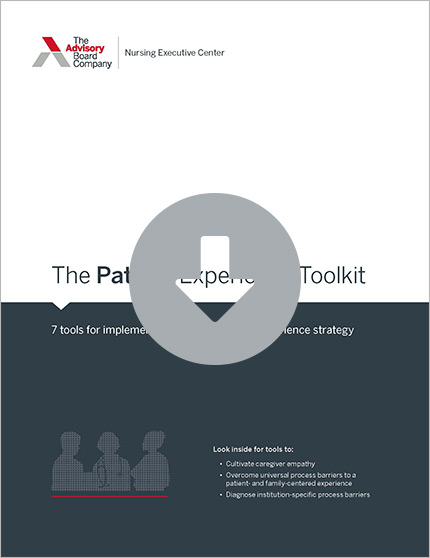Auto logout in seconds.
Continue LogoutEditor's note: This popular story from the Daily Briefing's archives was republished on June 5, 2019.
The vast majority of patient complaints about physician offices are about customer service, according to a new study published in the Journal of Medical Practice Management.
Cheat sheet: Your guide to responding to online reviews
For the study, conducted by Vanguard Communications—a marketing and public relations firm for specialty medical practices—researchers identified the words in nearly 35,000 Google+ reviews of physicians that were most commonly associated with each rating level, from one to five stars.
Study findings
Most patients rated their doctors highly, the study found: 61 percent gave five-star reviews, compared to only 23 percent who gave one-star reviews. When patients did leave negative comments, the researchers found that only 4 percent of their complaints were explicitly related to medical treatment. The other 96 percent focused on issues such as inadequate communication, wait times, and disorganized operations.
The study also found that patients who leave low-star reviews tended to write more content. Among negative comments, the most common issues cited were related to:
- Communication (53 percent);
- Long wait times (35 percent);
- Practice staff (12 percent); and
- Billing (2 percent).
"The nearly unanimous consensus is that in terms of impact on patient satisfaction, the waiting room trumps the exam room," says study co-author Ron Harman King and CEO of Vanguard. "Hardly anyone had a beef with the quality of health care received."
Meanwhile, the most common compliments contained in five-star reviews were related to:
- Bedside manner (40 percent);
- Practice staff (28 percent); and
- Communication (24 percent).
The importance of front-office performance in patient satisfaction may actually be good news for physician practices, King says. "Generally, it's far simpler to fix problems at the front desk or physician scheduling than to deal with allegations of inadequate medical skills" (Gooch, Becker's Hospital Review, 4/26; Olinger, Denver Post, 4/26; Vanguard release, 4/24; Vanguard newsroom, accessed 4/24).
Cheat sheet: Your guide to responding to online reviews
If you've looked at your organization's Yelp or Google reviews recently, chances are you saw a few negative reviews mixed in with the positive ones.
Responding to online reviews can be tricky—use this cheat sheet to learn best practices for strategically responding in a HIPAA-compliant, patient-friendly manner.
Don't miss out on the latest Advisory Board insights
Create your free account to access 1 resource, including the latest research and webinars.
Want access without creating an account?
You have 1 free members-only resource remaining this month.
1 free members-only resources remaining
1 free members-only resources remaining
You've reached your limit of free insights
Become a member to access all of Advisory Board's resources, events, and experts
Never miss out on the latest innovative health care content tailored to you.
Benefits include:
You've reached your limit of free insights
Become a member to access all of Advisory Board's resources, events, and experts
Never miss out on the latest innovative health care content tailored to you.
Benefits include:
This content is available through your Curated Research partnership with Advisory Board. Click on ‘view this resource’ to read the full piece
Email ask@advisory.com to learn more
Click on ‘Become a Member’ to learn about the benefits of a Full-Access partnership with Advisory Board
Never miss out on the latest innovative health care content tailored to you.
Benefits Include:
This is for members only. Learn more.
Click on ‘Become a Member’ to learn about the benefits of a Full-Access partnership with Advisory Board
Never miss out on the latest innovative health care content tailored to you.

